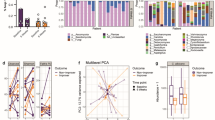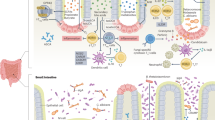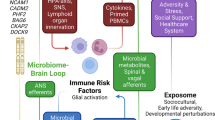Abstract
This project explores the nature of the human intestinal microbiome in healthy children and children with recurrent abdominal pain. The overall goal is to obtain a robust knowledge base of the intestinal microbiome in children without evidence of pain or gastrointestinal disease and in those with recurrent abdominal pain (functional abdominal pain (FAP) and FAP associated with changes in bowel habits, i.e., irritable bowel syndrome or IBS). Specific aims include: 1. Characterize the composition of the gut microbiome in healthy children by DNA sequencing. 2. Determine the presence of disease-specific organism signatures of variable gut microbiomes in children with recurrent abdominal pain. 3. Perform functional gut metagenomics by evaluation of whole community gene expression profiles and discovery of disease-specific pathway signatures. Multiple strategies have been deployed to navigate and understand the nature of the intestinal microbiome in childhood. These strategies included 454 pyrosequencing-based strategies to sequence 16S rRNA genes and understand the detailed composition of microbes in healthy and disease groups. Microarray-based hybridization with the PhyloChip and quantitative real-time PCR (qPCR) probes were applied as complementary strategies to gain an understanding of the intestinal microbiome from various perspectives. Data collected and analyzed during the HMP UH2 Demo project, from a set of healthy and IBS children (7-12 yo) may enable the identification of core microbiomes in children, in addition to variable components that may distinguish healthy from diseased pediatric states. Twenty-two children with IBS and twenty-two healthy children were enrolled and analyzed in the UH2 phase of this study. The planned enrollment targets for the UH2/3 phases include 50 healthy children, 50 children with FAP and 50 children with IBS (minimum of 3 time points per child). We are currently analyzing the dataset for the presence of disease-specific signatures in the human microbiome, and correlating these microbial signatures with pediatric health or IBS disease status in addition to IBS subtype (e.g., diarrhea-vs constipation-predominant). In the next phase, whole genome shotgun sequencing and metatranscriptomics will be performed with a subset of children in each group. This study explores the nature of core and variable human microbiome in pre-adolescent healthy children and children with IBS.
Similar content being viewed by others
Article PDF
Author information
Authors and Affiliations
Rights and permissions
About this article
Cite this article
Versalovic, J., Shulman, R., Riehle, K. et al. The Human Microbiome and Recurrent Abdominal Pain in Children. Nat Prec (2010). https://doi.org/10.1038/npre.2010.5228.1
Received:
Accepted:
Published:
DOI: https://doi.org/10.1038/npre.2010.5228.1



